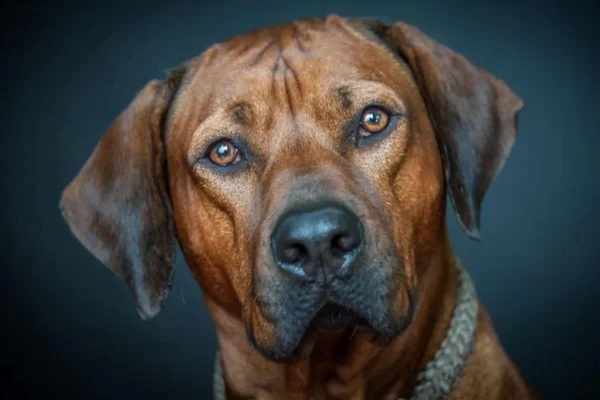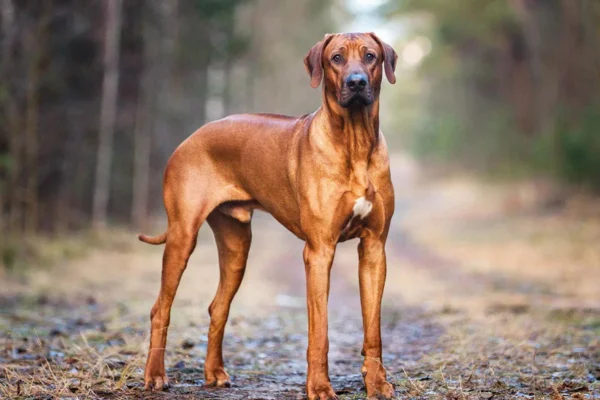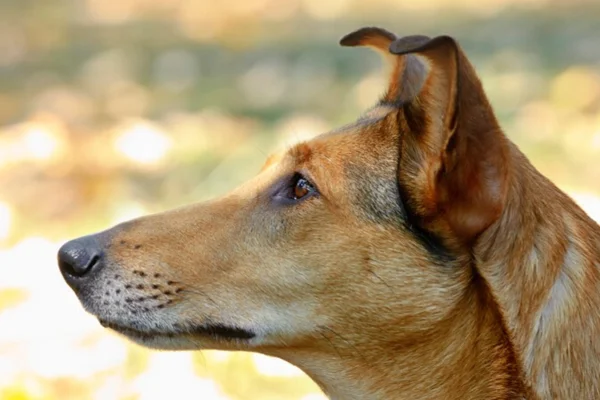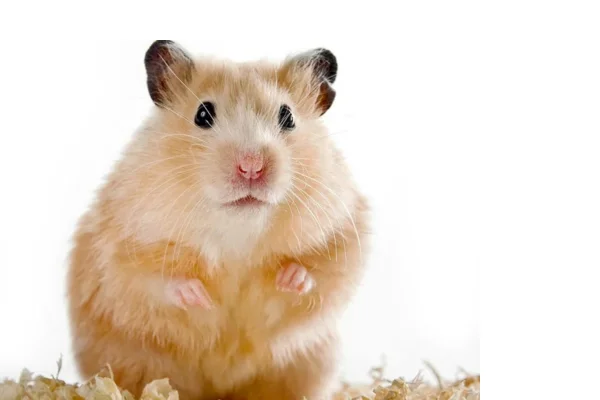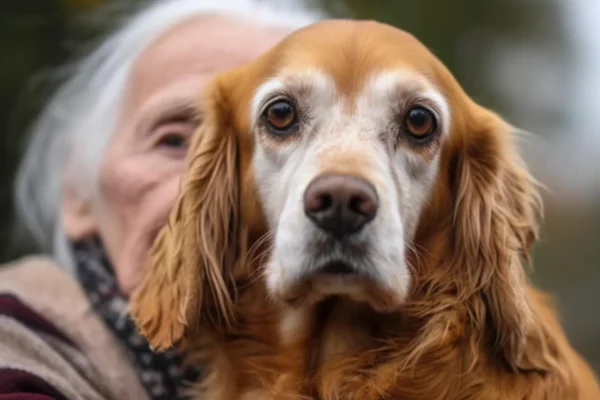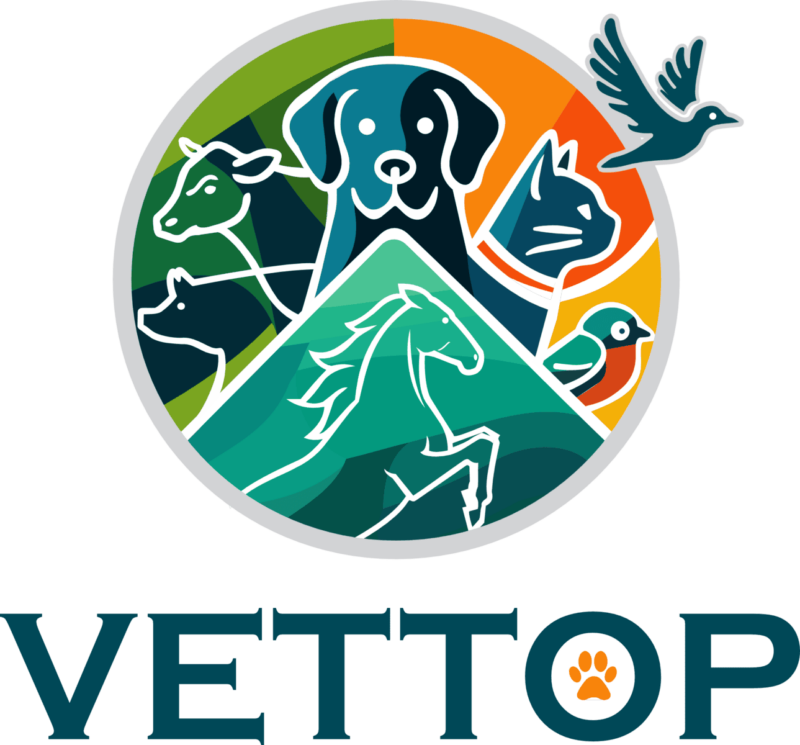The Fascinating Lion of Rhodesia: A Fearless and Faithful Watchdog
The canine world is vast and diverse, with breeds ranging from the small and adorable Chihuahuas to the majestic and imposing Rhodesian Lions. The latter, also known as the Rhodesian Lion, is a unique breed, steeped in history, mystery and wonder. Originally from southern Africa, the Rhodesian Lion is not only a loyal companion, but also a fearless guardian, with skills that make it unique among hunting and guard dogs.
Origins and History
The Rhodesian Lion is a breed with a rich history, dating back to the 19th century. Its origins are linked to the region of Rhodesia, now Zimbabwe, where European settlers crossed their hunting dogs with the region's native dogs, known for their characteristic dorsal crest - a line of hair that grows in the opposite direction to the rest of the coat. These native dogs, called Hottentot Hunting Dogs, were crossed with various European breeds, including the Great Dane, Bloodhound, Greyhound and Terrier, to create a versatile and robust dog, capable of facing the challenges of African wildlife.
The first documented records of the development of the Rhodesian Ridgeback date back to the 1920s, when the breed began to gain formal recognition. These dogs were highly valued for their ability to track and corner lions, keeping them in place until the hunters arrived. Such a feat required not only courage and strength, but also intelligence and endurance - characteristics that define the breed to this day.
Contents
Physical characteristics
The Rhodesian Lion is a medium to large dog with an athletic and muscular appearance. Males usually weigh between 36 and 41 kilos, while females range from 29 to 34 kilos. The average height for males is 63 to 69 cm, and for females 61 to 66 cm. The breed's most distinctive feature is undoubtedly the dorsal crest, formed by hairs that grow in the opposite direction to the rest of the coat. This crest generally extends from the base of the neck to the base of the tail and is considered an essential criterion for the breed.
The Rhodesian Ridgeback's coat is short, dense and shiny, varying in shades of wheat from light to deep red. Some white markings on the chest and toes are acceptable, but large white patches are considered undesirable in the breed standards. Their eyes are round and expressive, ranging from amber to brown, and their ears are medium-sized, falling naturally to the side of the head.
Temperament and Behavior
The Rhodesian Ridgeback's temperament is one of its greatest attractions. Known for his unwavering loyalty, he is a devoted family dog who forms deep bonds with his owners. His independent and confident nature makes him an excellent watchdog, always alert and ready to protect his home and family. Despite its intimidating appearance, the Ridgeback is generally calm and reserved with strangers, but will not hesitate to act if it feels its family is threatened.
The intelligence of the Rhodesian Lion is another of the breed's strong points. They are quick to learn commands and can be trained for a variety of tasks, from basic obedience to more complex skills. However, their independent nature also means that they can be stubborn, requiring patience and consistency in training. Early socialization is crucial to ensure that they become well-balanced and well-adjusted adults.
Exercise and Activity
Due to their heritage as hunting dogs, Rhodesian Lions have high energy levels and need plenty of exercise to stay healthy and happy. Long daily walks, runs and time to play in a safe space are essential. They also excel at dog sports such as agility, tracking and lure coursing, which offer an excellent way to channel their energy and intelligence.
However, it's important to remember that, despite their need for exercise, Ridgebacks can also appreciate moments of relaxation with their owners. They are versatile dogs who adapt well to both active lifestyles and quiet moments at home.
Health and Care
In general, the Rhodesian Ridgeback is a healthy breed, with an average life expectancy of 10 to 12 years. However, like all breeds, they are subject to certain genetic and health conditions. Some of the most common issues include hip dysplasia, hypothyroidism and dermoid sinus, a congenital condition that affects the skin and spine. Genetic testing and regular examinations can help identify and treat these conditions early on.
Maintaining the Ridgeback's coat is relatively simple due to its short, dense nature. Weekly brushing is usually enough to remove loose hairs and keep the coat shiny. Occasional baths are recommended, especially if the dog gets dirty during outdoor activities. Oral hygiene, ear cleaning and regular nail trimming are also part of the essential care to keep the Rhodesian Ridgeback healthy and comfortable.
Adaptation and Family Life
Rhodesian Lions are adaptable dogs that can adjust to a variety of living environments, as long as their exercise needs are met. They can live well both in houses with large yards and in apartments, as long as they receive daily walks and enough time outdoors.
One of the most notable qualities of this breed is its protective instinct and loyalty to its family. They are known for being excellent with children, showing patience and kindness. However, due to their size and energy, supervision is recommended around small children to avoid unintentional accidents.

Curiosities
- Alternative NameThe Rhodesian Ridgeback is also known as the "African Lion Dog" due to its historical ability to track and corner lions.
- Movie StarThe breed gained fame in Hollywood, appearing in films such as "The Ghost and the Darkness" and "Because of Winn-Dixie".
- Heat ResistanceAdapted to the African climate, Ridgebacks have a high resistance to heat, making them ideal for hot climates.
- Night PatrolTraditionally, Rhodesian Ridgebacks were used to patrol properties at night, protecting against predators and intruders.
- VersatilityIn addition to their hunting abilities, Ridgebacks are also used in search and rescue, therapy and as service dogs due to their intelligence and trainability.
- Long Life RecordAlthough the average life expectancy is 10 to 12 years, some Rhodesian Ridgebacks have lived up to 16 years or more with good care and a balanced diet.
- Participation in SportsRidgebacks excel in agility and obedience competitions, showing their versatility and intelligence.
- Working dogsIn South Africa, Ridgebacks are often used on farms to protect cattle from predators and to help run the herd.
- Rare AppearanceThe dorsal ridge is a dominant genetic trait, but around 10% of puppies are born without it and are called "Ridgeback No Ridge".
- Independent SpiritDespite their loyalty, Ridgebacks have an independent spirit, often displaying a confident and reserved attitude.
Final considerations
The Rhodesian Ridgeback is a dog of many facets: a fearless hunter, a vigilant guardian and a loyal companion. Its combination of strength, intelligence and loyalty makes it an excellent choice for those looking for a devoted family dog and a reliable protector. However, it is important to remember that this breed requires a serious commitment in terms of time, training and exercise. For those who are willing to invest the necessary time and effort, the Rhodesian Lion will repay them with years of faithful companionship and protection.
If you are considering adding a dog to your family, it is essential to do careful research and find a reputable breeder. Joining breed clubs and talking to other owners of this breed can provide valuable information and help you make an informed decision. With the right care and training, they can be a wonderful addition to any family, bringing joy, security and companionship for many years to come.
Thank you for visiting us and check out our other work

